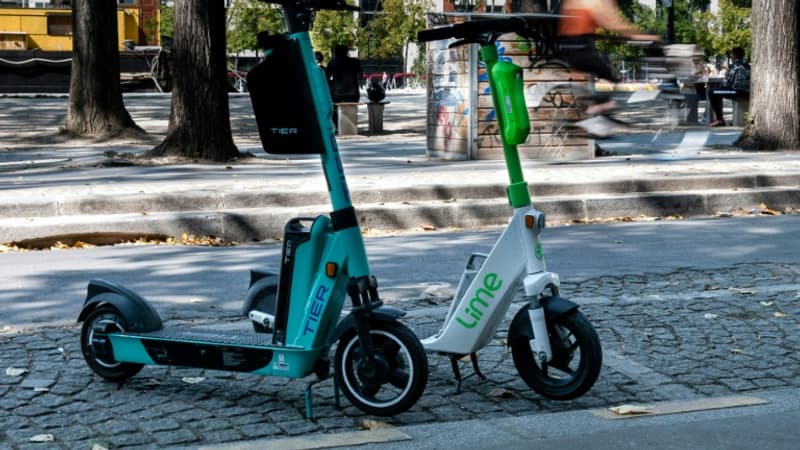Starting September 1, Paris will become the first European capital to completely ban self-service scooters, five years after they were introduced.
Many Parisians have been overwhelmed to see them weaving between pedestrians, even restricted to 10 km/h in certain areas, or parking in the middle of pavements; Multiple accidents have been attributed to them.
15,000 scooters withdrawn from the streets of the capital
The three operators, Lime, Tier and Dott, will lose their authorization to occupy public spaces after an unprecedented “vote” in early April. The “no” had won with almost 90%, but only 7.46% of those registered on the electoral lists had moved.
The socialist mayor of Paris herself, Anne Hidalgo, campaigned in favor of voting “against”, stressing that the eviction of these scooters would reduce the “nuisance”.
Since August, the 15,000 machines have been phased out from the streets (more than a handful are available on Thursday, mainly in central Paris) to be shipped, after possible repairs, to other cities.
Machinery in the Paris region… and in Germany
Of the 5,000 scooters coming from the German level, a third will remain in the Ile-de-France, in 80 communes around Marne-la-Vallée or Saint-Germain-en-Laye. The rest goes mainly to Germany.
Dott will ship his to Belgium or Tel Aviv. Lime’s green scooters will leave for Lille, London, Copenhagen and various German cities.
“We have turned the page on scooters” throughout the Île-de-France, Xavier Miraillès, director of public affairs for Lime, a Californian company, told AFP.
“It makes me sad because I find it very pleasant to be able to walk like this, to navigate from right to left without the stress of being in the car, of being blocked,” says Valérie Rinckel, a user of the service.
On the contrary, “I think it’s safer for us to stop there and eventually get back on the bike or for people to take the bus or public transportation,” says Anass Eloula, another customer.
In Paris, some 400,000 people will have chosen a scooter to get around by 2022, according to operators.
Source: BFM TV


